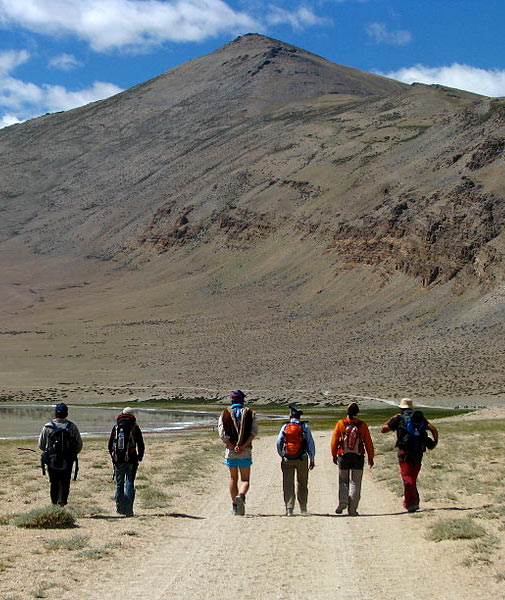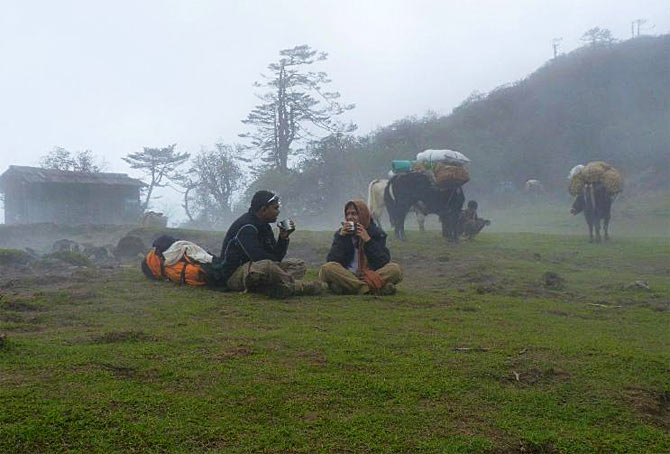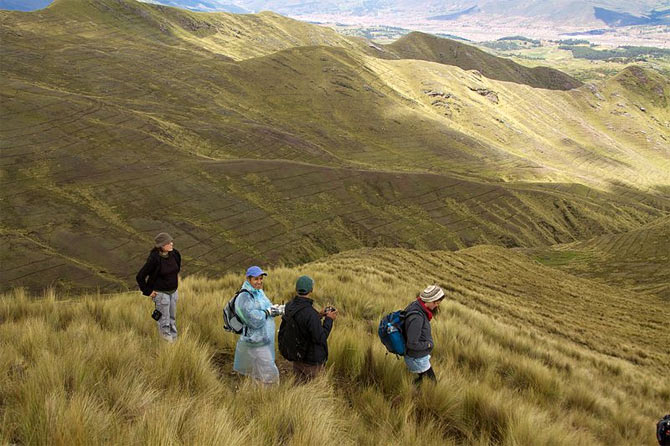 | « Back to article | Print this article |
Why you need to go on a 'trek date' before getting married
Arjun Majumdar talks about how a trek helps in making a better choice of a life partner.
Most couples who are thinking of getting married waste an enormous amount of time dating each other over expensive cups of coffee in the hope that they'll get to know each other better.
I have bad news for you. You won't.
In an artificial setting like a coffee shop, restaurant or a park, you only talk. Yet, we spend most of our married life doing things -- making breakfast, going to office, sending the kids to school. And in doing these ordinary tasks we display our love, respect and consideration towards one other. It cements our bond and our marriage becomes stronger.
A trek date is an excellent way to check if your partner possesses qualities to make a marriage work. On a long trek -- preferably over 5-6 days -- the mask of the city wears off quickly and the real person surfaces. It makes sense to keenly observe this real person.
Here are a few points for you to observe:
Courtesy: 
Why you need to go on a 'trek date' before getting married
1. Is your partner capable of sticking to the discipline of a trek? A trek requires discipline in schedule, preparation and routine. So does life.
2. Does your partner complain? A Himalayan trek is not easy. If your partner finds fault with things -- from the difficulty of the terrain, to the quality of food; to the conditions of your tent, to the transport used, your partner is a whiner. If you have a complaining partner your life is going to be similar.
3. Does your partner cooperate? Like a trek, life is a series of cooperation -- at home and work. If your partner cooperates with most situations it speaks of a healthy mind and heart. Check if your partner volunteers for cooperative activities that does not directly benefit themselves, say in arranging the tent or packing sleeping bags or getting tea for others. The more cooperative the partner the safer is your future.
Why you need to go on a 'trek date' before getting married
4. Does your partner make the best of situations? On a trek times will come when things go out of control. What does your partner do in such situations? Show frustration and complain or try to make the best of the situation? You need a life partner who can deal with bad situations in a cool and composed manner. A dose of humour is a bonus.
5. Does your partner mingle and mix? When at camp does your partner spend time talking with others and learning from them or does your partner like to be alone or sticks with you. All of us like to be left alone at times -- but mingling with others is part of our social world. Partners who stick with you most of the time on a trek will either be a pain later or is faking it.
6. Does your partner show consideration to the world? Does your partner pick up fallen chocolate wrappers on the trek? Does your partner have a kind word and gesture towards the guides and porters? Does your partner address them with an "aap" rather than "tum"? Does your partner spend time with a trekker who is down? A considerate partner is far more important in life than a loving partner.
Why you need to go on a 'trek date' before getting married
7. Does your partner ask people (however sweetly) to get things like tea, warm water, or dinner? It takes an effort to head to the kitchen for these things -- but it also shows a human being who is self sufficient -- someone who doesn't order people around. A partner who orders is a menace for the future.
I hope these pointers will help you choose your partner wisely. Going on a 'Trek Date' is a new way of seeing the most important person in your life.
Trek Dates are becoming increasingly popular among the urban youth. It is easy to see why. Trek Dates help unmarried young men and women find life partners. They get to meet prospective partners and also check their compatibility in real life situations -- something modern coffee shops don't allow.



